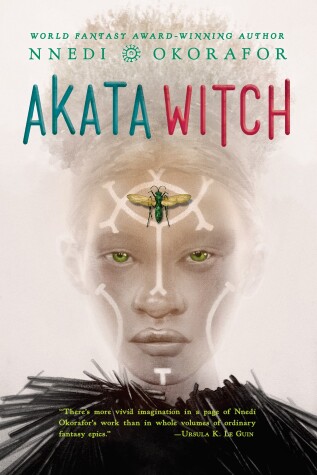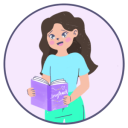
nannah
Written on Mar 4, 2022
Content warnings:
- fatphobia
- magical cure trope
- child abuse
Representation:
- the characters are West African, with the MC and another character being Nigerian-American
- the MC has albinism (sort of)
- another main character has dyslexia
When Sunny was small, she witnessed the end of the world in a candle flame. Now she’s twelve years old, and has just learned that what she saw might become a reality. Being an American-born Nigerian is hard enough, and having albinism makes it worse, but with her new friends’ meddling, Sunny has also learned she’s also one of the Leopard People, sorcerers whose powers stem from a person’s “greatest defect”. She and her friends form West Africa’s youngest Oha Coven, and are told by their mentors to find and stop the serial killer, Black Hat Otokoto--or what Sunny saw in the candle will come true.
Despite some graphic content regarding death and murder, I'm very surprised this is categorized as YA. The writing is definitely more appropriate for an MG audience (don't get me wrong; that isn’t to say it’s bad … just very simplistic, straightforward, and better suited for younger kids). But the editing … the editing is awful. I know editors are horribly underpaid and overworked nowadays, but this book is especially terribly edited. Continuity errors, typos, pov switches, and the worst: failing to catch critical things like if Sunny actually moved to Nigeria when she was nine, or if she actually had been going to the same school as her Nigerian-born friend, Orlu, since she was five, or if she caught Malaria as a young child (how, if she lived in the US?), etc.
What I love is the creativity with world building, the culture and mythology woven into the magic system, and especially what seems to be a critique against Western individualism. The young MCs are always told the world is bigger than they are, that they can benefit their people as a whole, even if it harms them, etc. There are also extremely charming and touching scenes with fantastic creatures, like the bee that lives for its art--but can become overly dramatic if it doesn’t receive praise.
What I don't love as much is the ever-present fatphobia (being overweight is constantly stated as being a person’s own fault, and every overweight character is either a villain or an awful person), the lack of character development, and the way Sunny’s albinism is represented. The book’s theme, “your worst defect becomes your greatest asset”, falls a bit flat when a person’s worst defect is often their disability (which often is a “symptom” of magic) that magically gets cured. I’m saying this, of course, as an adult with both physical and mental disabilities; as a child I think I would probably have wanted that for myself.
But as an adult, seeing Sunny’s only medical symptom be magically cured leaves a bad taste in my mouth. Of course it’ll be easier for her to “embrace” her albinism, now that she doesn’t have to worry about bad sunburns and can play soccer in the sun. I do think kids with albinism reading this book might find it hard to see themselves in her, in this respect. Especially since Sunny really lacks any other symptom of albinism (like bad eyesight--which is the most common symptom, since to see your eyes themselves need pigment).
But all in all, I think I would have liked this as a kid. Now, I think I’m just too old. Which is fine! I’ll read the author’s adult books instead.

